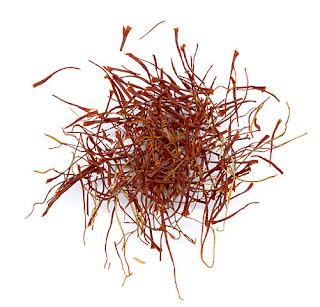The South Indians have an uncanny belief that if a pregnant woman adds saffron to her daily allowance ofmilk, the baby will be of fair complexion. Forget about the genes, heredity and what ever comes to your mind. Now talking about saffron, it had a rich cultural past and has a bright future ahead.
Saffron is a famous historical spice that had its origins in Greece
Talking about the healthbenefits of saffron it not only spices up your food but also your life. It is effective for treating depression, menstrual discomfort, premenstrual syndrome and Alzheimer’s disease. Several modern researchers say that saffron may have cancer suppressing, mutation preventing and antioxidant properties.
This deep auburn colored spice protects your eye health and plays a chemo-preventive fight against liver cancer. Saffron improves digestion and appetite. It provides relief from gas and acidity problems. A warm glass of milk topped with a few shreds of saffron promotes good sleep as it has mild sedative properties.
The saffron extract indirectly helps in weight loss because it controls compulsive eating habits.
Saffron is safe if taken in small amounts. Large amounts are totally unsafe. Care should be taken while including saffron during pregnancy. Large amounts of saffron can make the uterus contract and may cause a miscarriage. Saffron affects mood and it is not good for those suffering from bipolar disorder.
Take care,
Swarnam
Take care,
Swarnam
Swarnam
